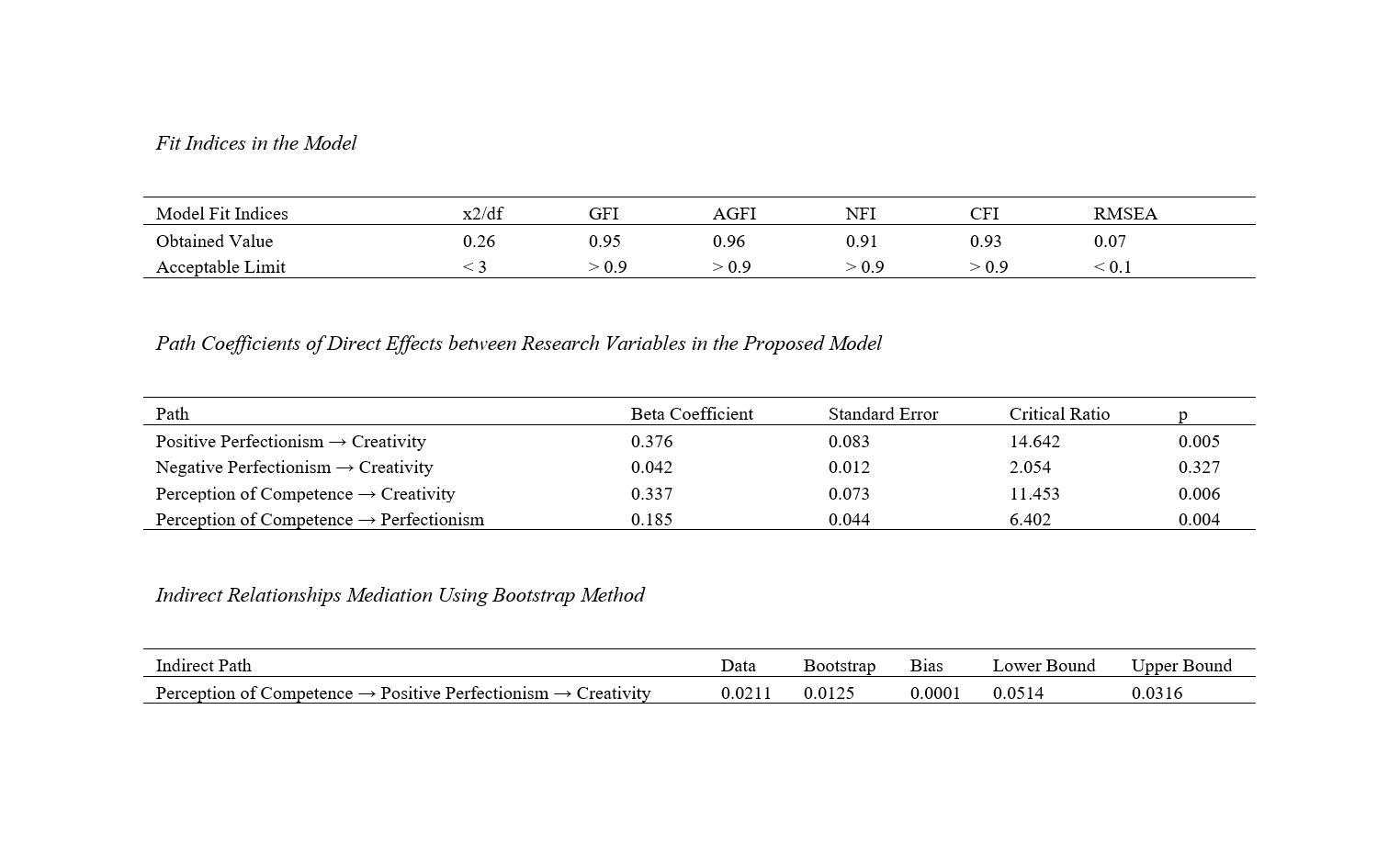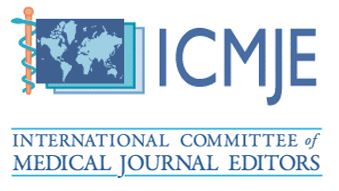Explaining the Creativity Model of Students Based on the Perception of Competence with the Role of Perfectionism
Keywords:
Creativity, Perceived Competence, Perfectionism, StudentAbstract
Objective: Students endowed with creative and critical thinking, alongside their unique intellectual and behavioral styles, confront academic and social life challenges. They efficiently fulfill their duties by optimally utilizing their existential forces and spirituality. The purpose of this study was to investigate the development of a model of student creativity based on perceived competence with the mediation of perfectionism.
Methods and Materials: The design of this study was descriptive-correlational. For this purpose, 300 students were selected using cluster random sampling and responded to the Abedi Creativity Scale (1993), the Harter's Self-Perception Profile for Adolescents (1982), and the Frost, Marten, Lahart, and Rosenblate Perfectionism Scale (1995). Data analysis was performed using path analysis. Additionally, SPSS 24 and AMOS 24 software were utilized for classification, processing, data analysis, and hypothesis testing.
Findings: The evaluation of the hypothesized model using fit indices showed that the model fits the measurement model (CFI=0.93, NFI=0.91, RMSEA=0.07). Overall, in the proposed model of the study, the results indicated that perceived competence is related to creativity both directly and indirectly through perfectionism (p<0.05). Moreover, the results showed a positive and significant relationship between perceived competence and perfectionism.
Conclusion: Therefore, to enhance student creativity, intervening in perceived competence and perfectionism could be significant.
Downloads

Additional Files
Published
Issue
Section
License
Copyright (c) 2024 Farnaz Moin Mehr, Gholam Ali Afrooz, Mahdi Davaee (Author)

This work is licensed under a Creative Commons Attribution-NonCommercial 4.0 International License.







































